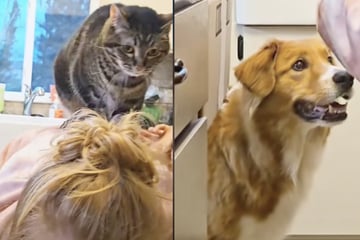Why do dogs chase their tails?
If you have ever owned a dog, you will have witnessed the hilarious spectacle of it chasing its own tail. But have you ever stopped to wonder what's going on? Let's take a look at why dogs sometimes chase their tails.
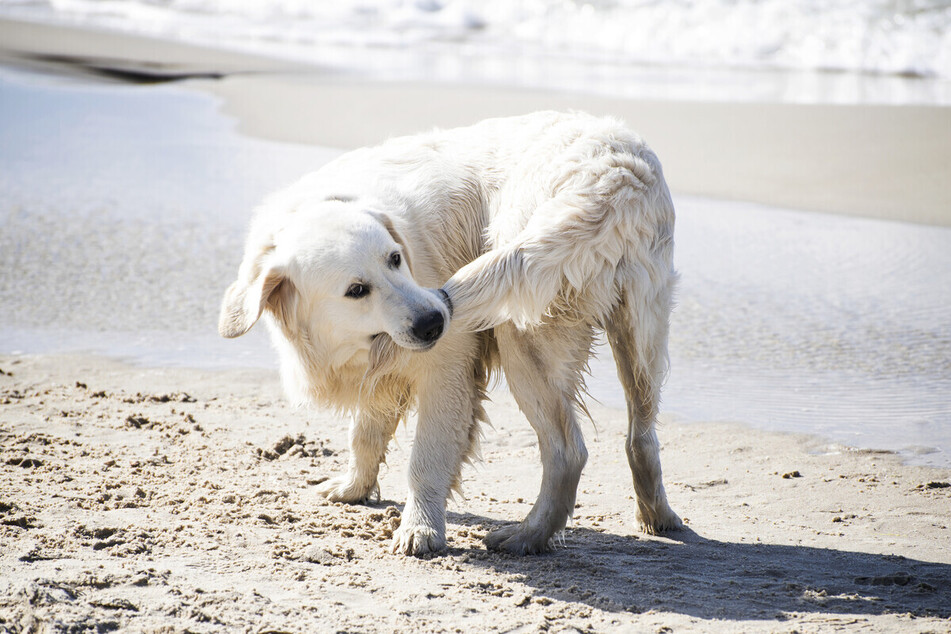
Dogs are playful creatures. Whether it's digging random holes, frolicking with their furry friends, or just acting silly, our canine companions are an endless source of fun and amusement.
On that note, there's one behavior that almost every pet owner will have chuckled over at least once: a dog chasing its tail, going around and around in circles.
So what exactly is going on there?
Why do dogs chase their tails and is there anything you should do about it?
TAG24's dog guide has the answer!
Why do dogs chase their tails?
Many people believe that dogs chase their tails because they mistake them for a different creature, but while that may be true of very young puppies, it is not the case in adult dogs. You see, dogs might not be the smartest cookies in the crumble, but they are certainly smart enough to understand what is and what is not their body.
Instead, most dogs chase their tails either as a way to entertain themselves and expel some energy or as a way to make themselves feel better when they're not feeling great.
In rare cases, though, the explanation may be less innocent and could be medically related. Physical injuries or infections, as well as genetic or neurological disorders, can play a role.
Your little fur balls might not be particularly intelligent, but to think that they chase their tails out of stupidity is both insulting and untrue. Instead, it's important to investigate the cause behind tail chasing and take action in the case that such a reason turns out to be negative.
So, if your dog starts chasing its tail, you don't need to freak out and get worried. If it becomes common or unusual, though, it might be time for a vet visit.
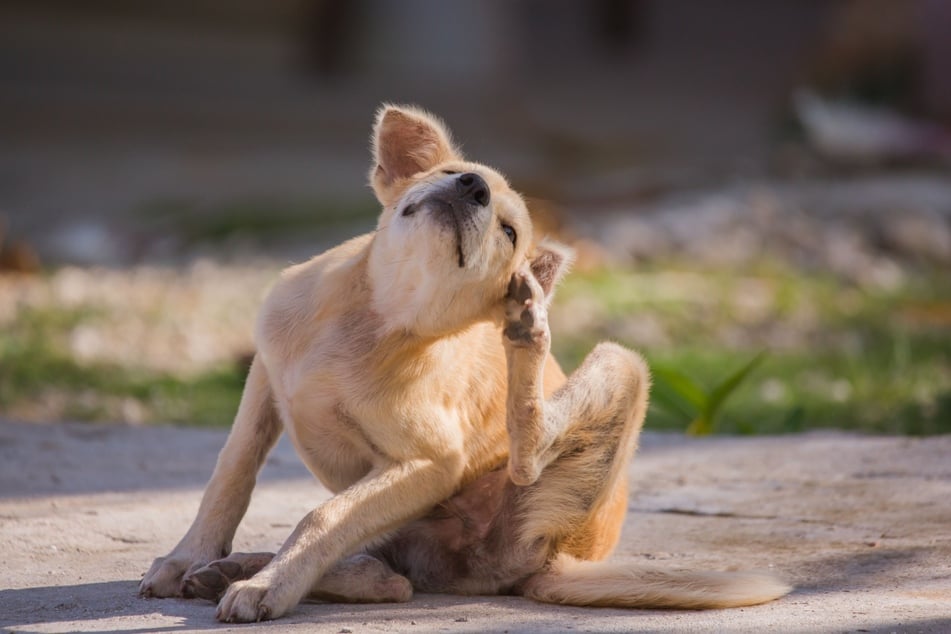
A natural behavior
In general, when a dog chases its tail, it is purely out of a natural and completely healthy behavior. It is a stress relief, and also a playful and fun activity that your dog might take part in when it is feeling excitable or a little anxious. In particular, it is very common and exceedingly normal among puppies.
Of course, if your dog starts chasing its tail constantly as an adult, it could be a sign of health issues, but that's not necessarily the case. Your darling doggo might love to chase its tail well into adulthood and may continue to exhibit the behavior until it is old and gray. It is normal, natural, hilarious, and not something to be concerned about.
Genetics
Certain dog breeds, particularly German shepherds or bull terriers, are particularly compulsive and enjoy tail chasing more than others. This is simply a genetic predisposition, and says nothing about your dog's health. As a result, it's best not to worry too much and worth investigating with a professional.
If you suspect that your dog is chasing its tail often because of its breed or genetics, ask your veterinarian about it. In addition, keep in mind that in most cases this is a behavior that can be carefully trained out of a smarter dog, or even a behavior that can be resolved through more regular walks and exercise.
Injuries
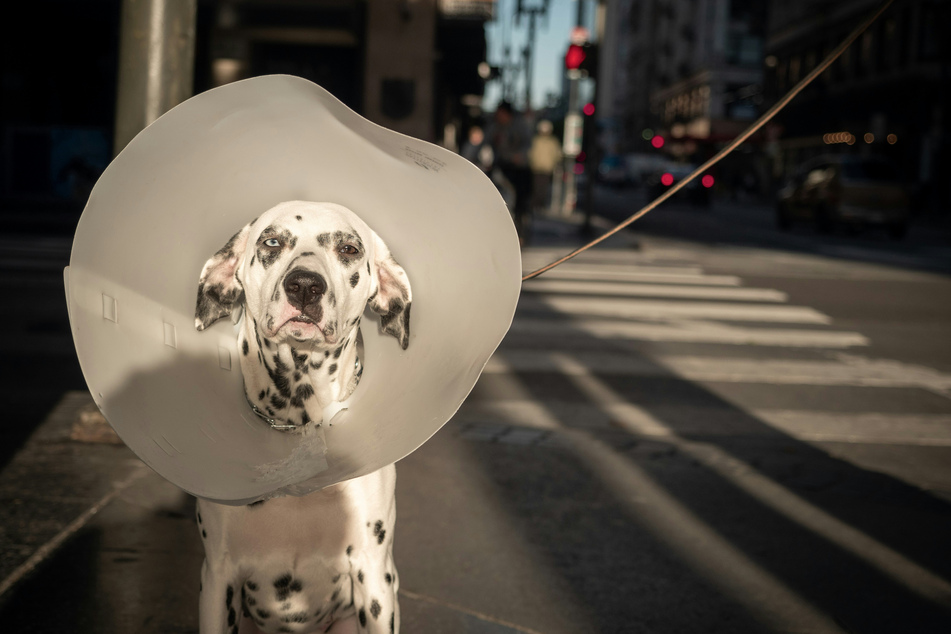
Injuries are a particularly common reason why dogs might chase their tail.
When a dog gets hurt it often doesn't really understand what is going wrong – after all, it's a dog, it has no concept of medicine or anatomy.
As a result, if its tail or back paws are hurting due to an injury, they may continually chase it around in an attempt to get hold of the damaged limb and start cleaning.
In addition, many injuries that involve cuts and scrapes also get quite itchy as the skin heals.
Such situations can actually be quite worrisome, as the habit of scratching the area can reopen wounds and slow down the healing process.
These situations, however, often involve a fair deal of tail-chasing.
Parasites
Various parasitic creatures can cause severe itching and a lot of distress in dogs, and often result in tail-chasing. Creatures like fleas and ringworm might seem relatively innocuous, simply causing some nasty bites, a bit of itchiness, and some general discomfort. Yet, in some cases, these same creatures can cause unspeakable discomfort and pain.
In the case that a parasite specifically attacks a dog's hindquarters, it is not unlikely that – in your dog's attempt to lick and calm down the itchy or painful area – it will run around in circles as if it is trying to chase its tail. Such issues might seem visibly funny, but should be taken very seriously as they are very unpleasant for the dog.
Neurological disorders
There are a variety of neurological disorders, such as obsessive-compulsive disorder in dogs, that can cause a dog to chase its tail more often. Such disorders, which also include nervousness disorder or anxiety, can have a significantly negative impact on your dog's overall health and need desperate and immediate attention.
When a dog constantly chases its tail and scratches itself due to neurological disorders, nerve damage can also enter the picture. This would be the worse-case-scenario, and is something we desperately want to avoid if we can. Stress can be a factor as well, but no matter what, this is a good reason to go to the veterinarian.
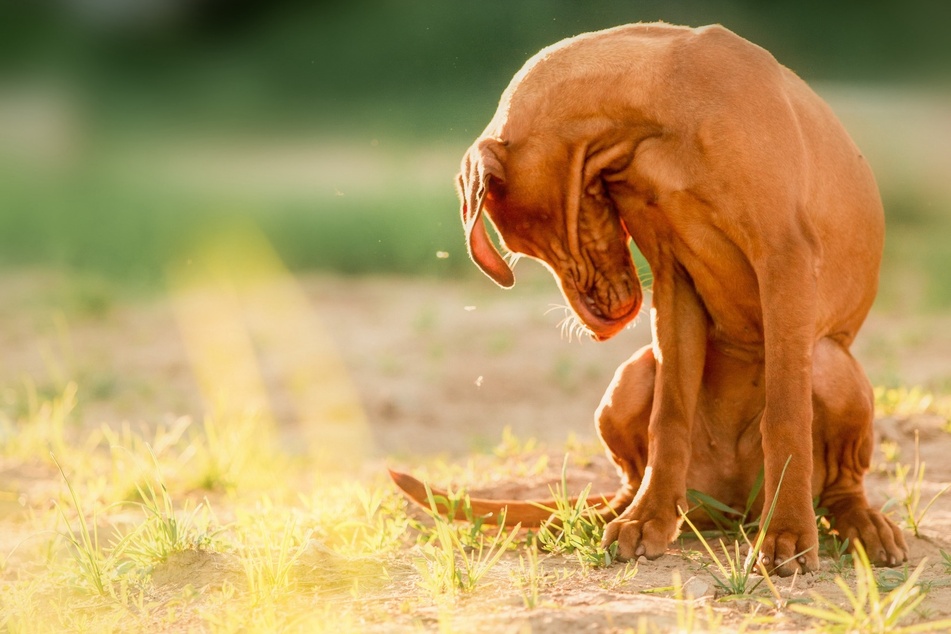
What to do when your dog or puppy chases its tail
There's not much you can do when your dog chases its tail, so we would simply recommend doing this: Leave your darling doggo be, try to identify what is causing the problem and, if it is a common issue or there's a clear cause, contact your veterinarian. It really is that simple.
You have to remember that neither you nor we are vets, or have particularly deep banks of medical knowledge to pull from. The health of our pets is entirely reliant on us following the advice of medical professionals, so if you are ever worried, you need to go to a veterinarian – not a website.
It can be alarming when your dog starts chasing its tail, running around and around in circles, and looking increasingly frustrated. Try not to worry, though, it is usually something completely harmless.
Cover photo: 123RF/Fotoyou





